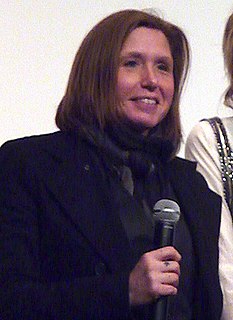A Quote by R. A. Salvatore
Whenever you're writing a book or creating a movie or a game, your first task is to get the reader/audience/player to suspend disbelief, to buy into the logic and boundaries of your world, even though those boundaries might include things like dragons and magic. To do that, you need long threads - of history and culture.
Related Quotes
In any kind of comic scene you're going to perhaps push the boundaries of plausibility but as long as there is some semblance of logic I think as an audience you'll buy it and as an actor, when it comes to playing things like that, it gives you something to delve into. When I don't buy into a comic scene is the type of scenario where you'd just go: "Well, that would never happen."
When you do your collection, you are much more free. You have fewer boundaries. When you work on a movie, you have to take into consideration the story, the plot, the vision of the director, even the physique of your cast. And then on top of all this, you want your imagination, your taste, and your ideas to come through. But a movie is forever.
I get letters from two kinds of readers. History buffs, who love to read history and biography for fun, and then kids who want to be writers but who rarely come out and say so in their letters. You can tell by the questions they ask - How did you get your ?rst book published? How long do you spend on a book? So I guess those are the readers that I'm writing for - kids who enjoy that kind of book, because they're interested in history, in other people's lives, in what has happened in the world. I believe that they're the ones who are going to be the movers and shakers.
Gods, religions and national boundaries are absolutely imaginary. They don't tend to exist. As soon as you pull back half a mile and look down at the Earth there are no national boundaries. There aren't even national boundaries when you get down and walk around. They're just imaginary lines we draw on maps. I just get fascinated by people who assume that things that are imaginary have no relevance to their lives.
Write what you want to read. So many people think they need to write a particular kind of book, or imitate a successful style, in order to be published. I've known people who felt they had to model their book on existing blockbusters, or write in a genre that's supposed to be "hot right now" in order to get agents and publishers interested. But if you're writing in a genre you don't like, or modeling yourself on a book you don't respect, it'll show through. You're your first, most important reader, so write the book that reader really wants to read.
I allude to Back to the Future in the 1985 story to let folks know it was an inspiration and because it literally was the most time-travelly bit of pop culture we had in the mid 80's. I can talk about their tools for considering change. First, the book is metafictive in a traditional sense where I'm showing and telling the reader that the act of writing and reading is a reflexive way to push boundaries of real and literal time travel. Writers and readers are time travellers. The question is what we do with that time we traveled when we leave a book, leave a page.
































